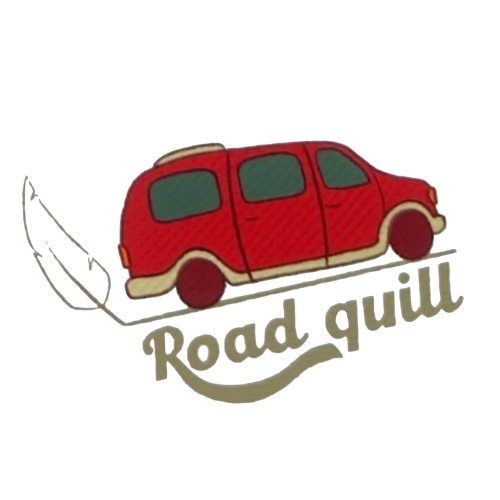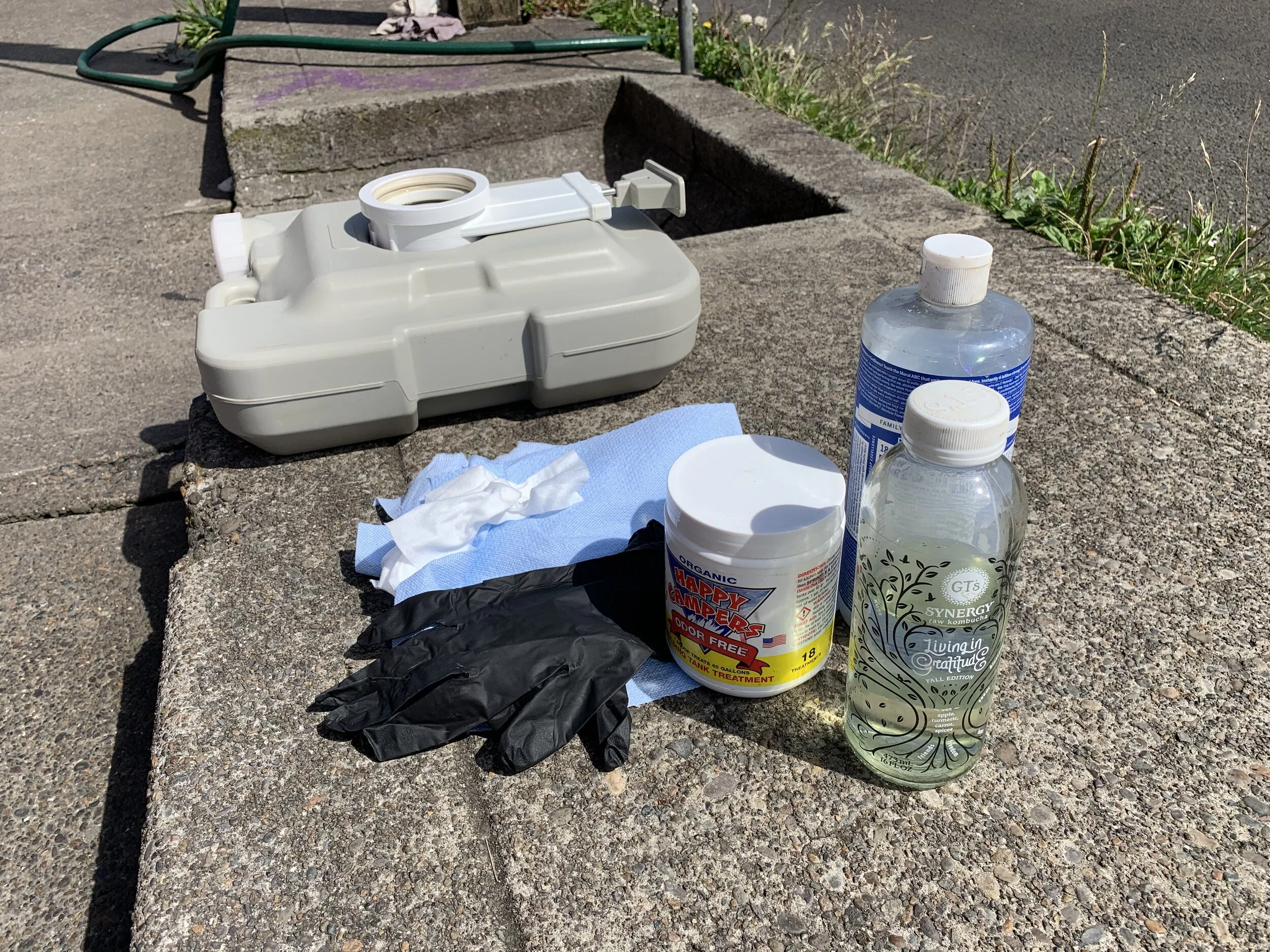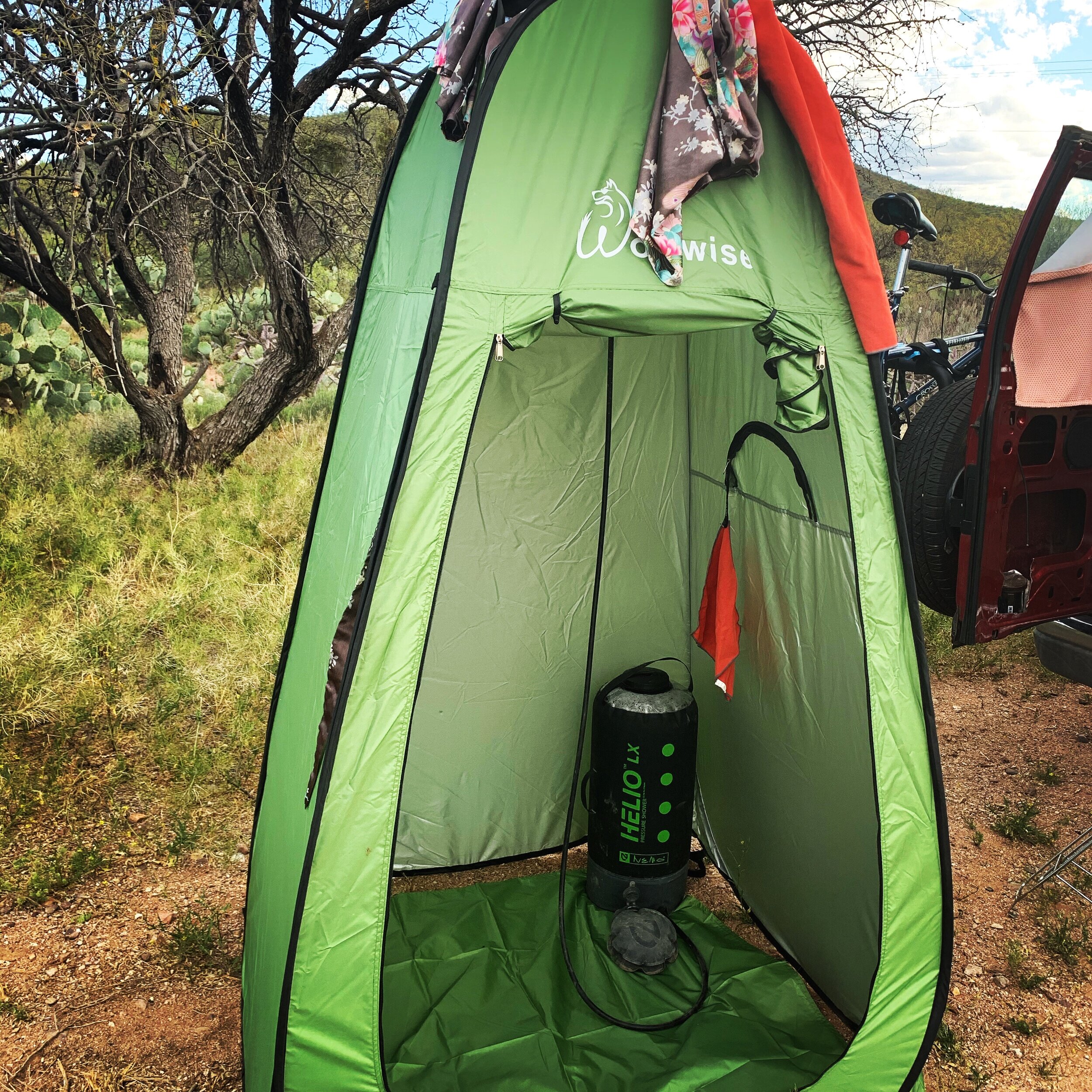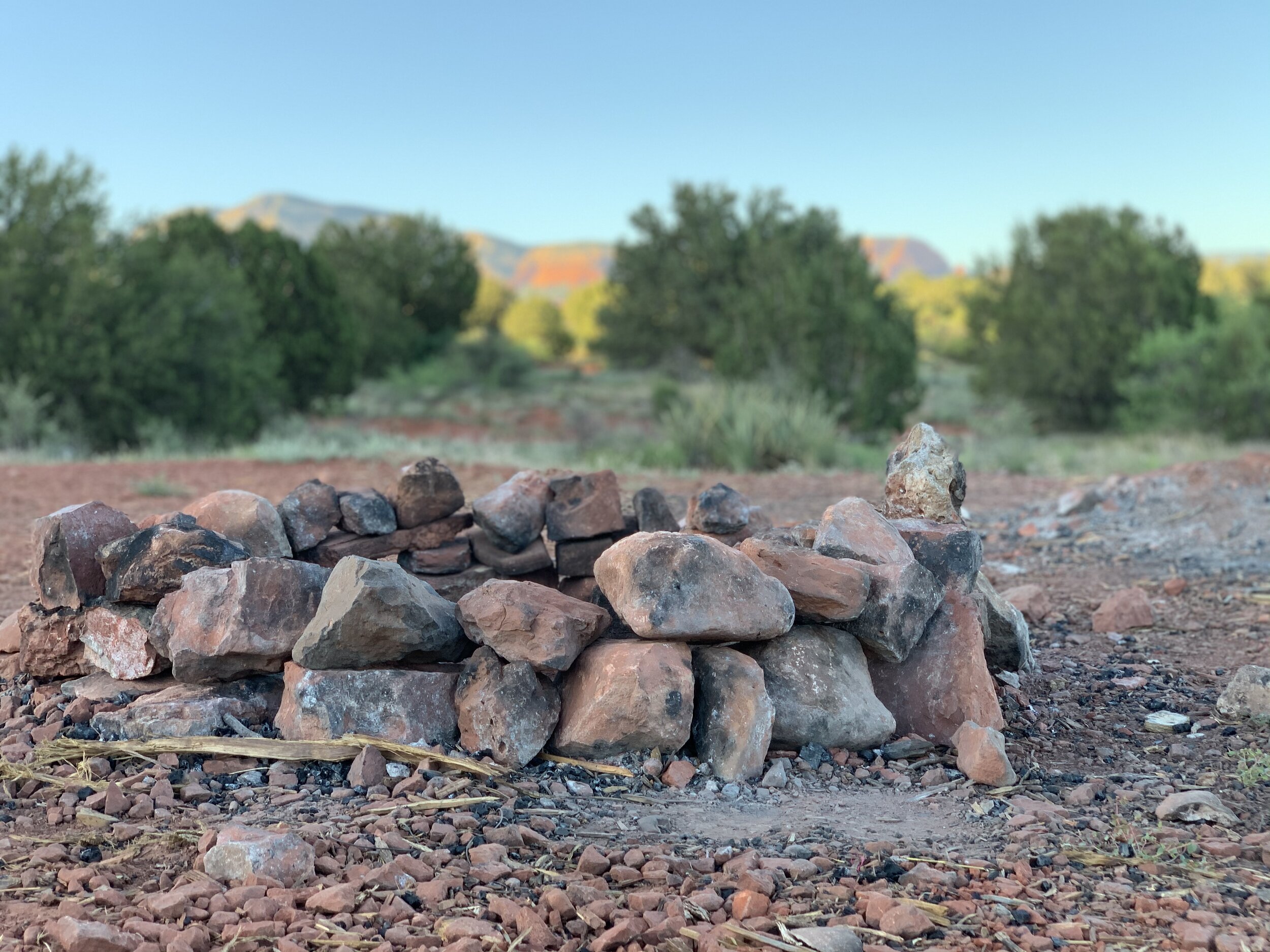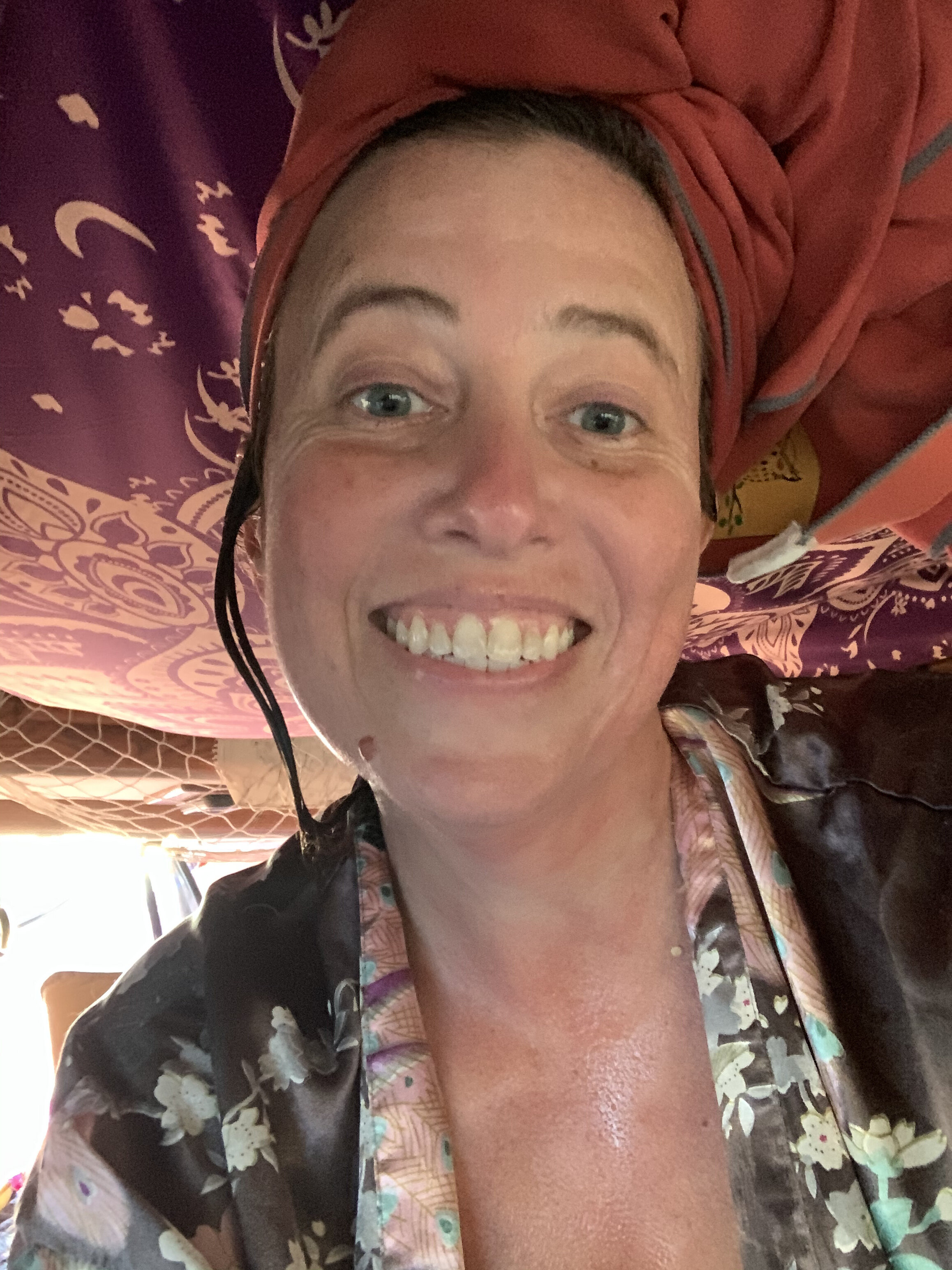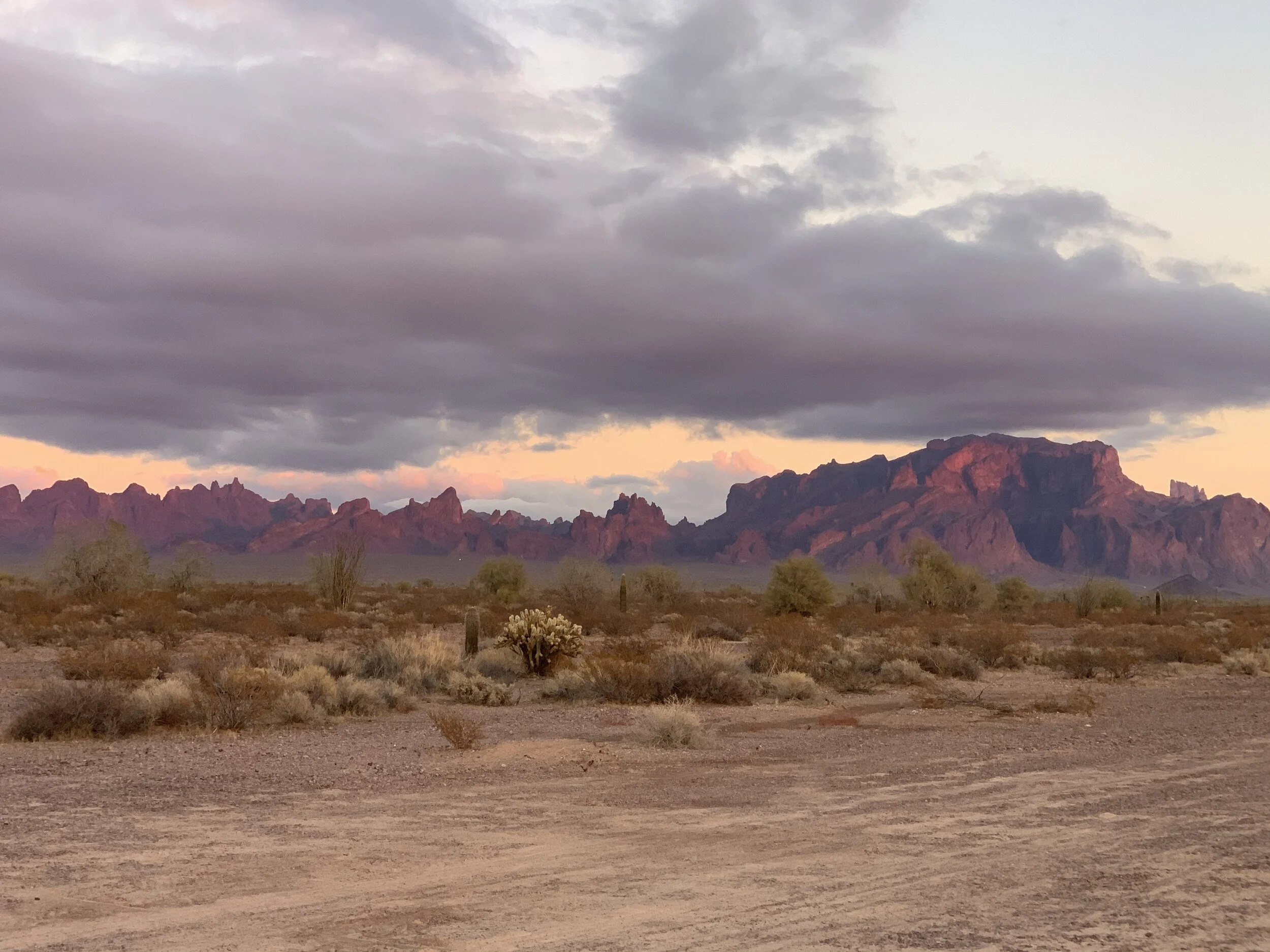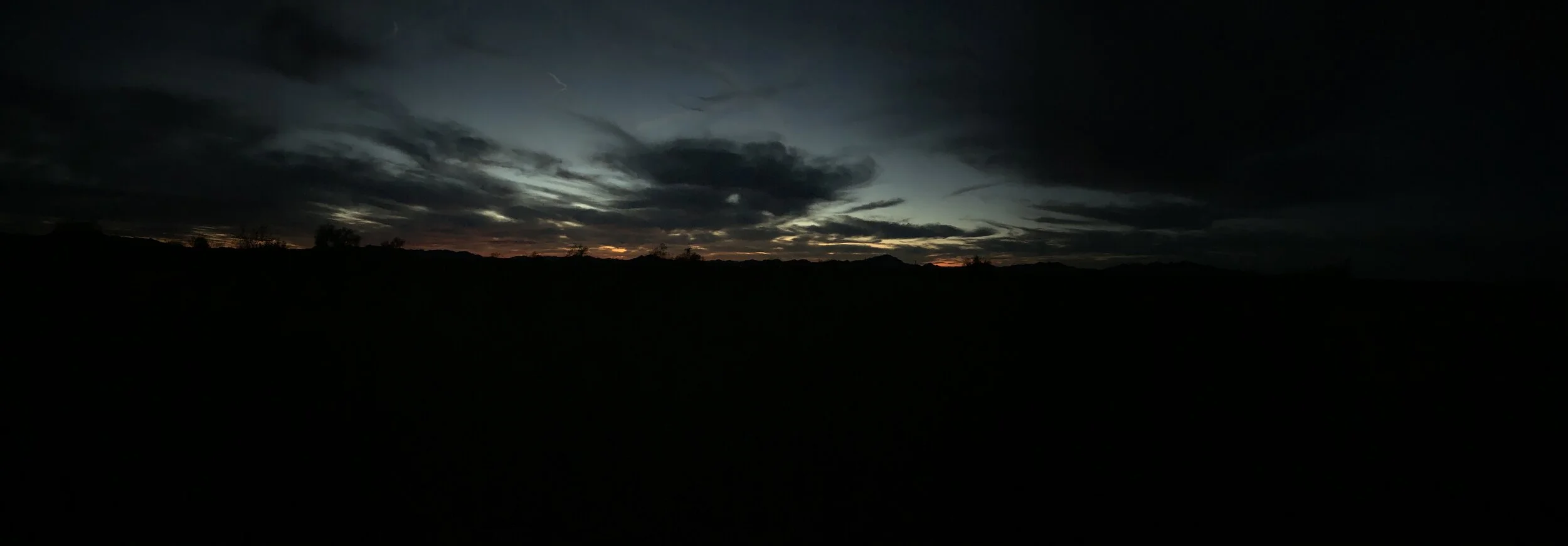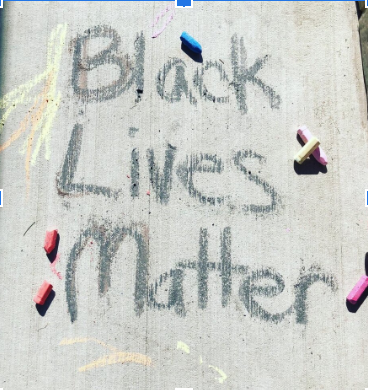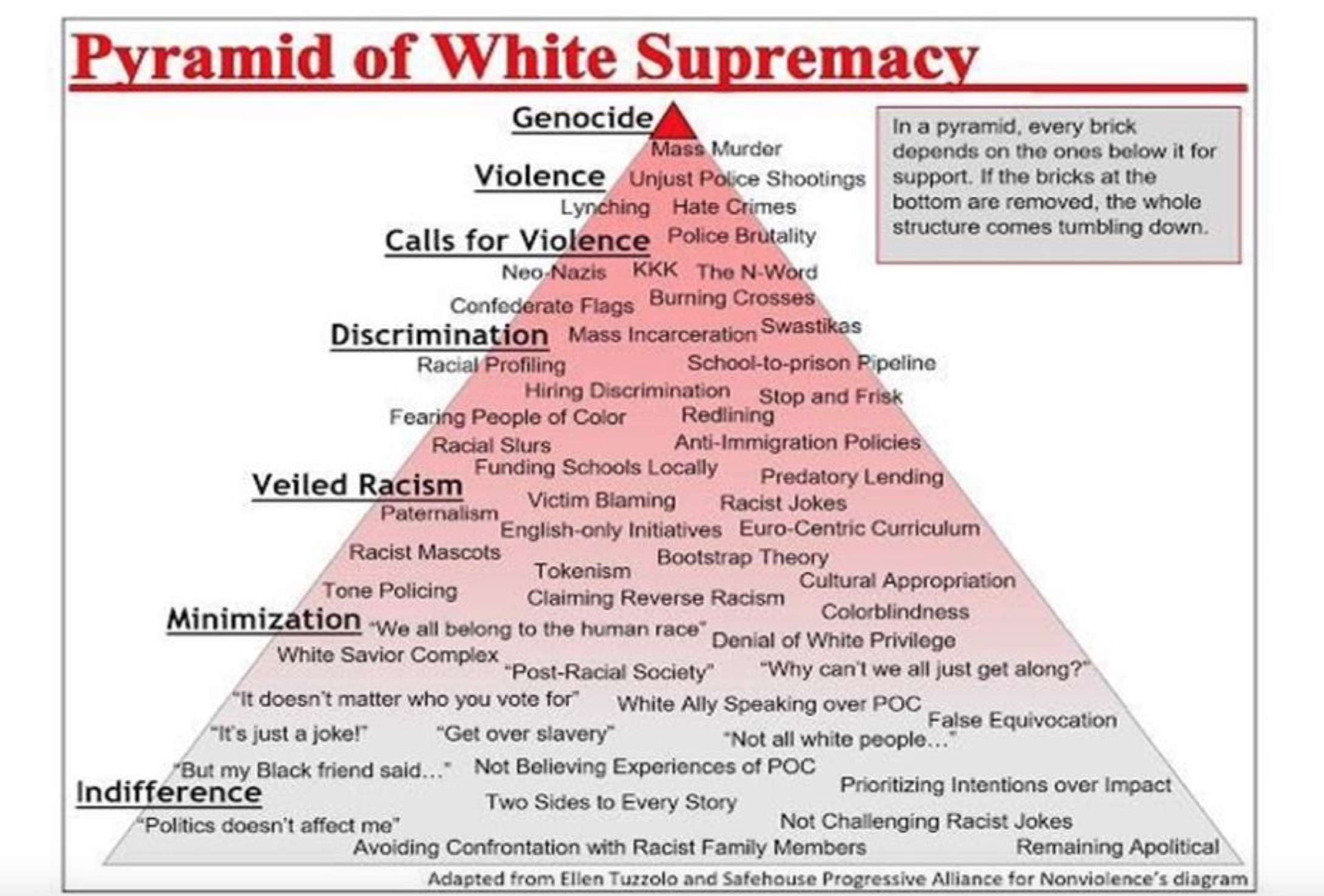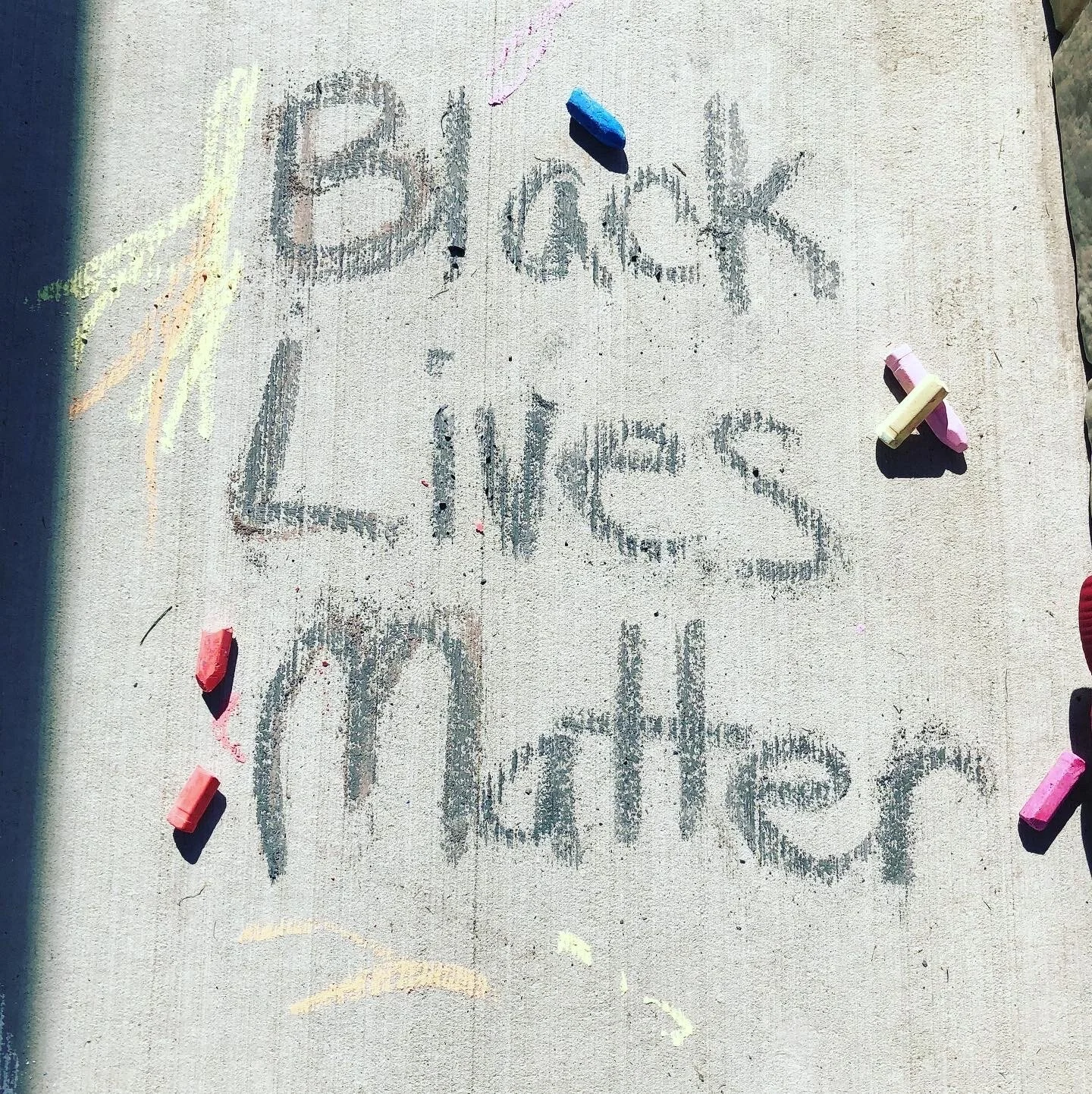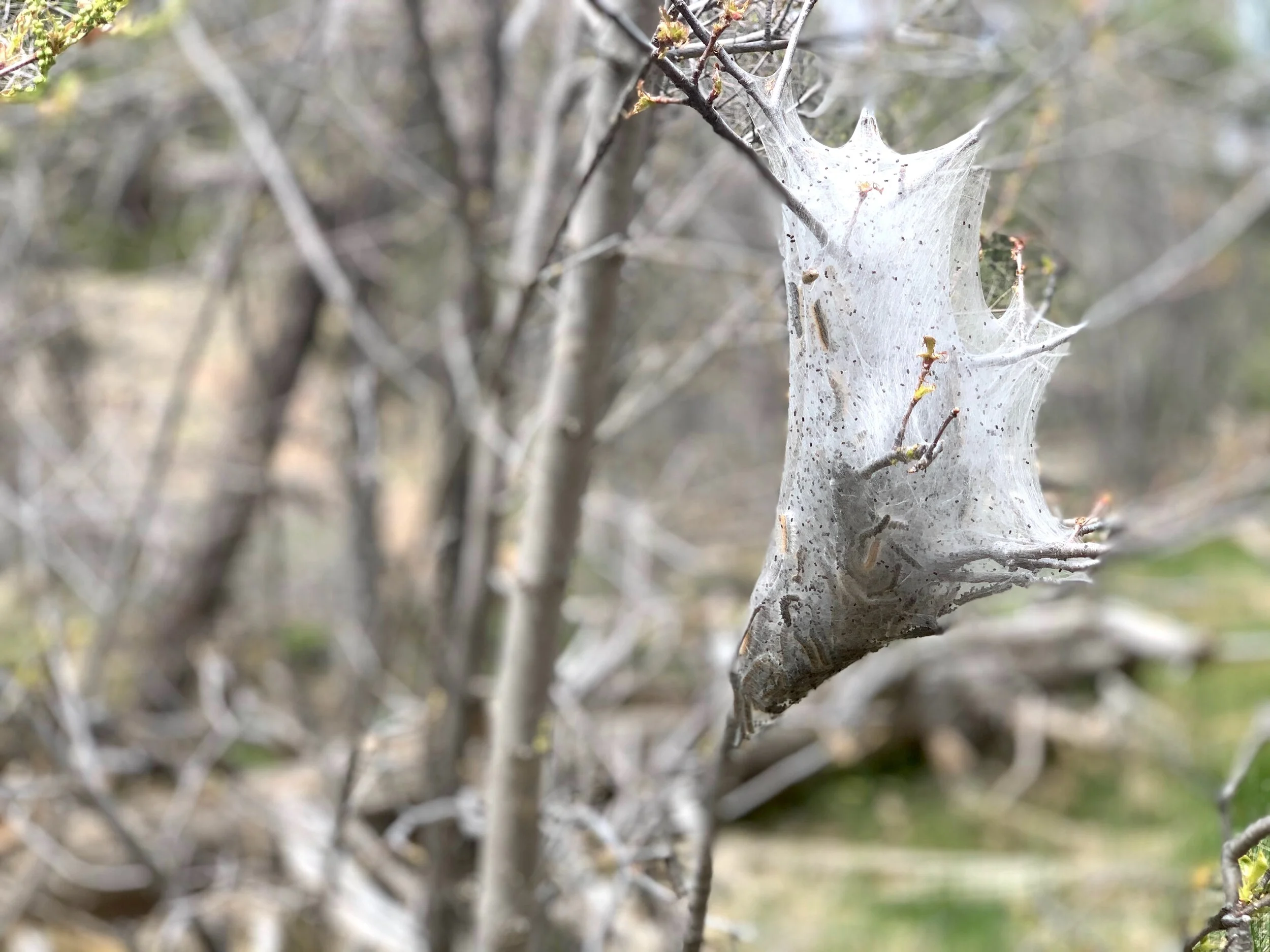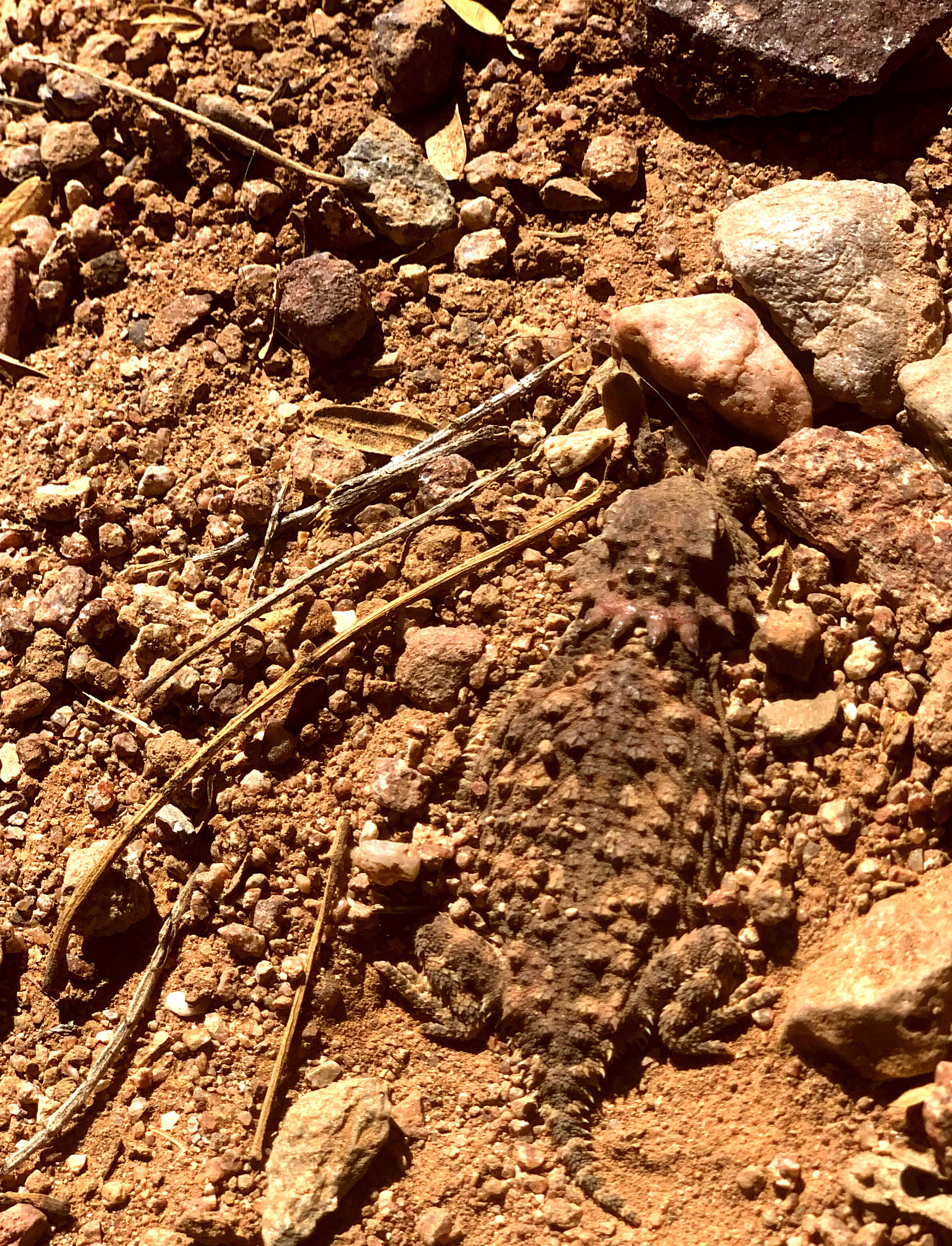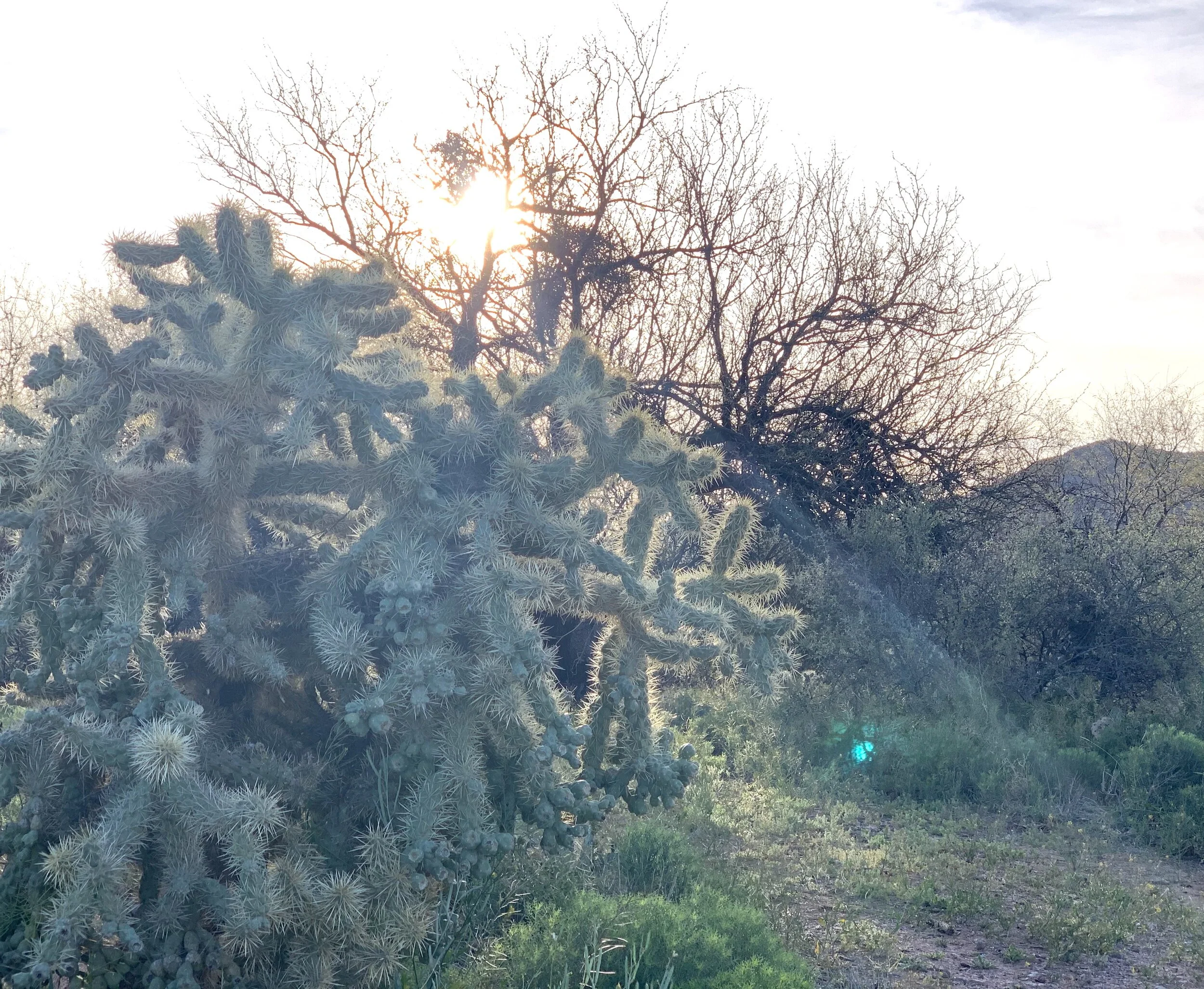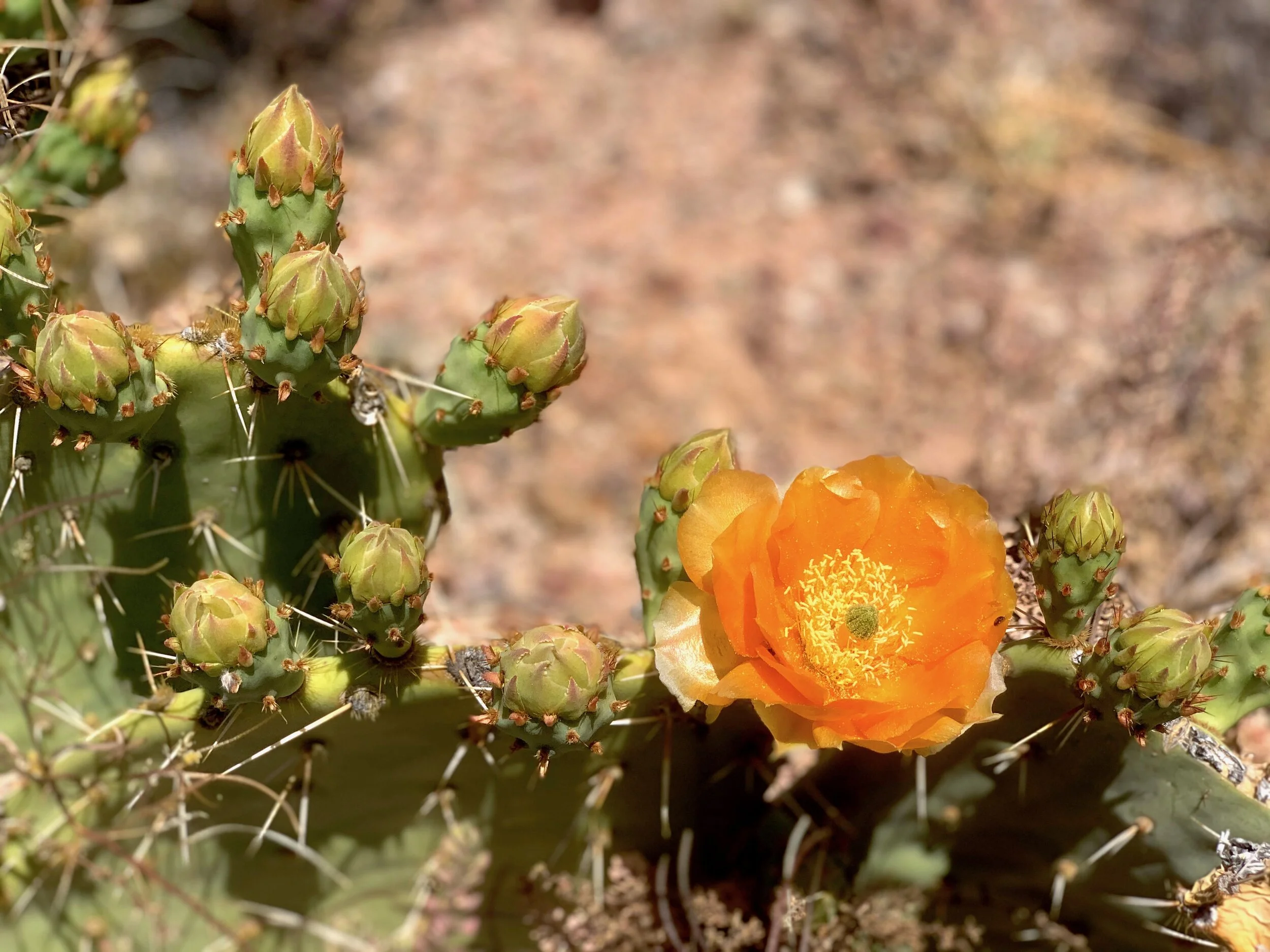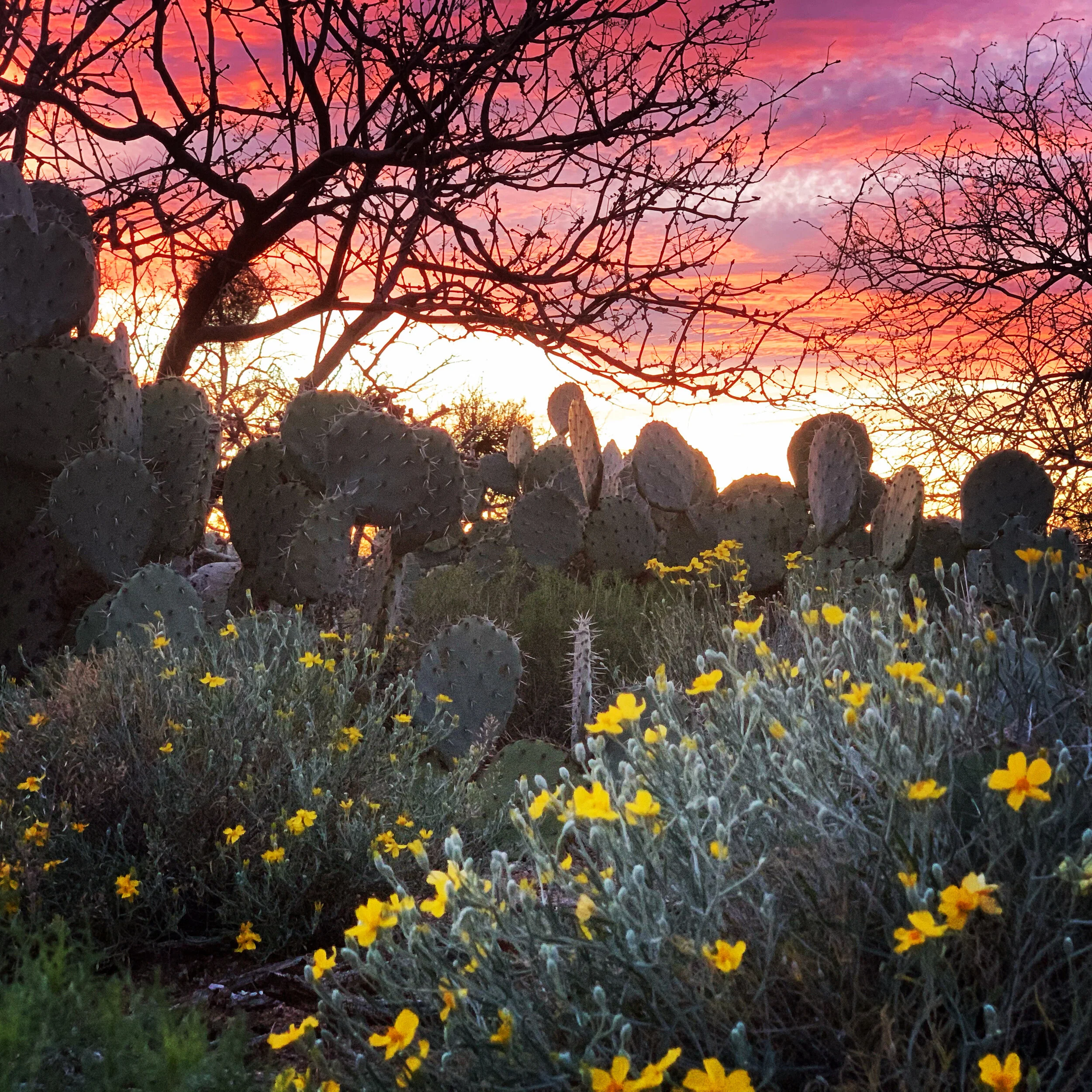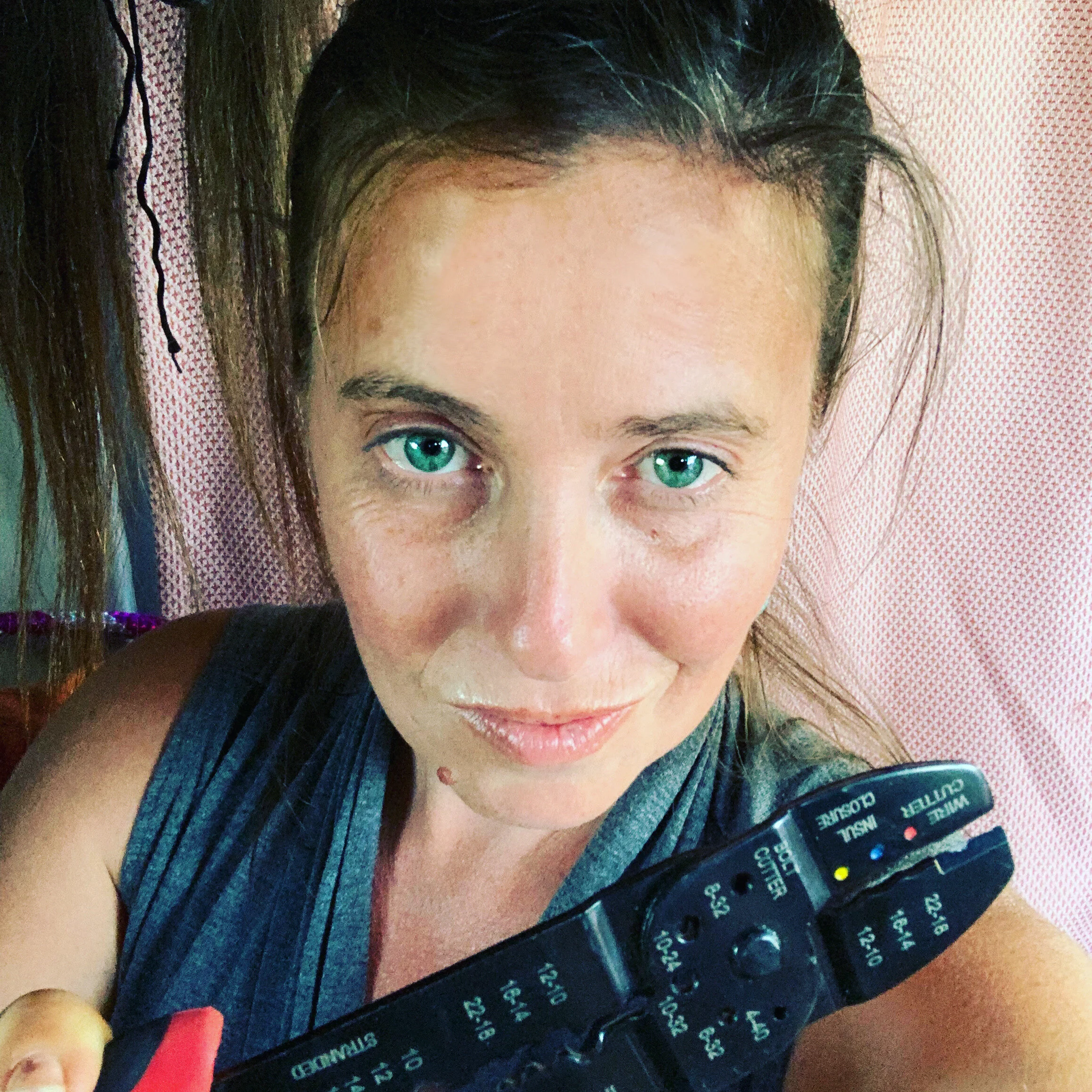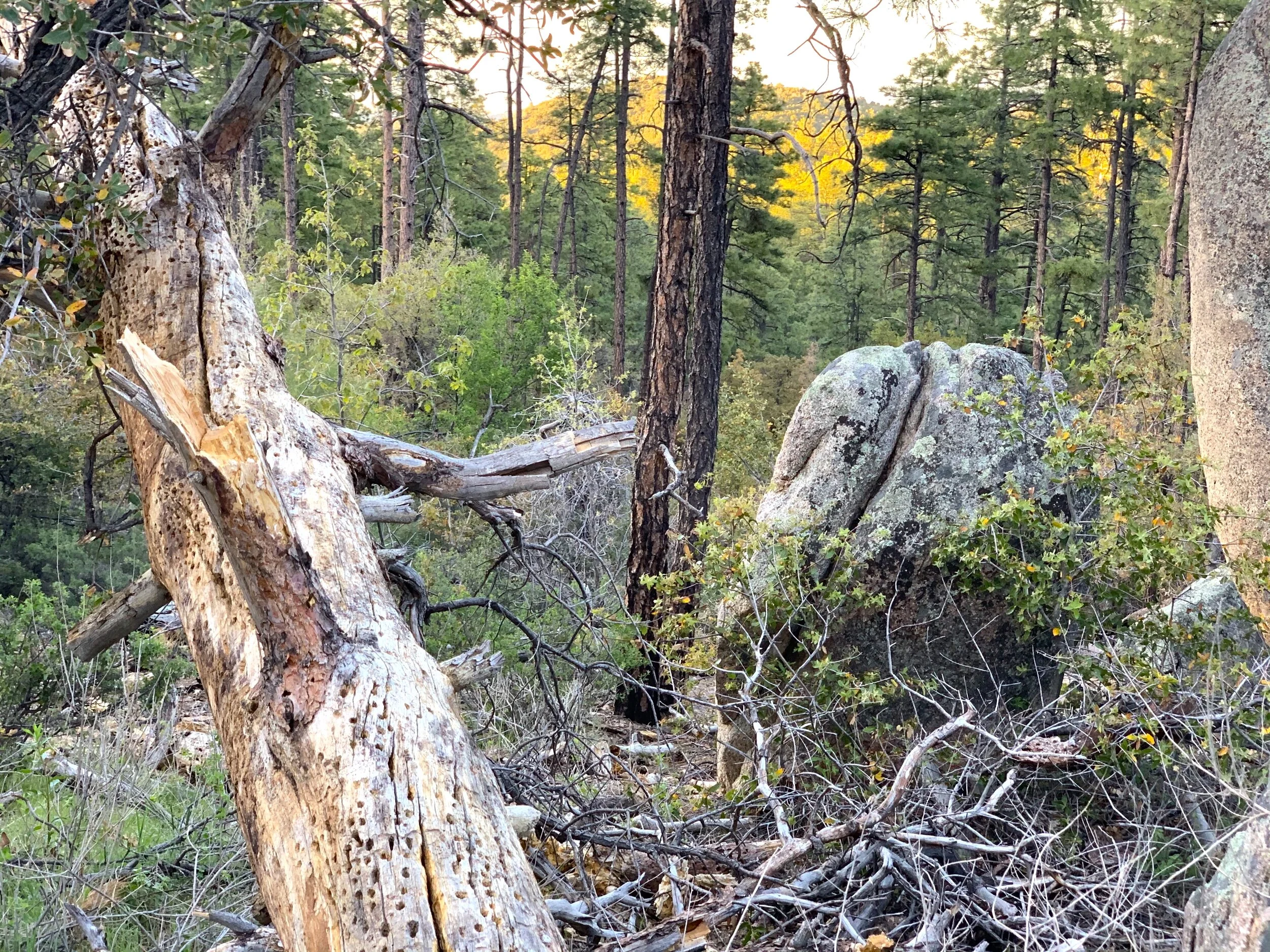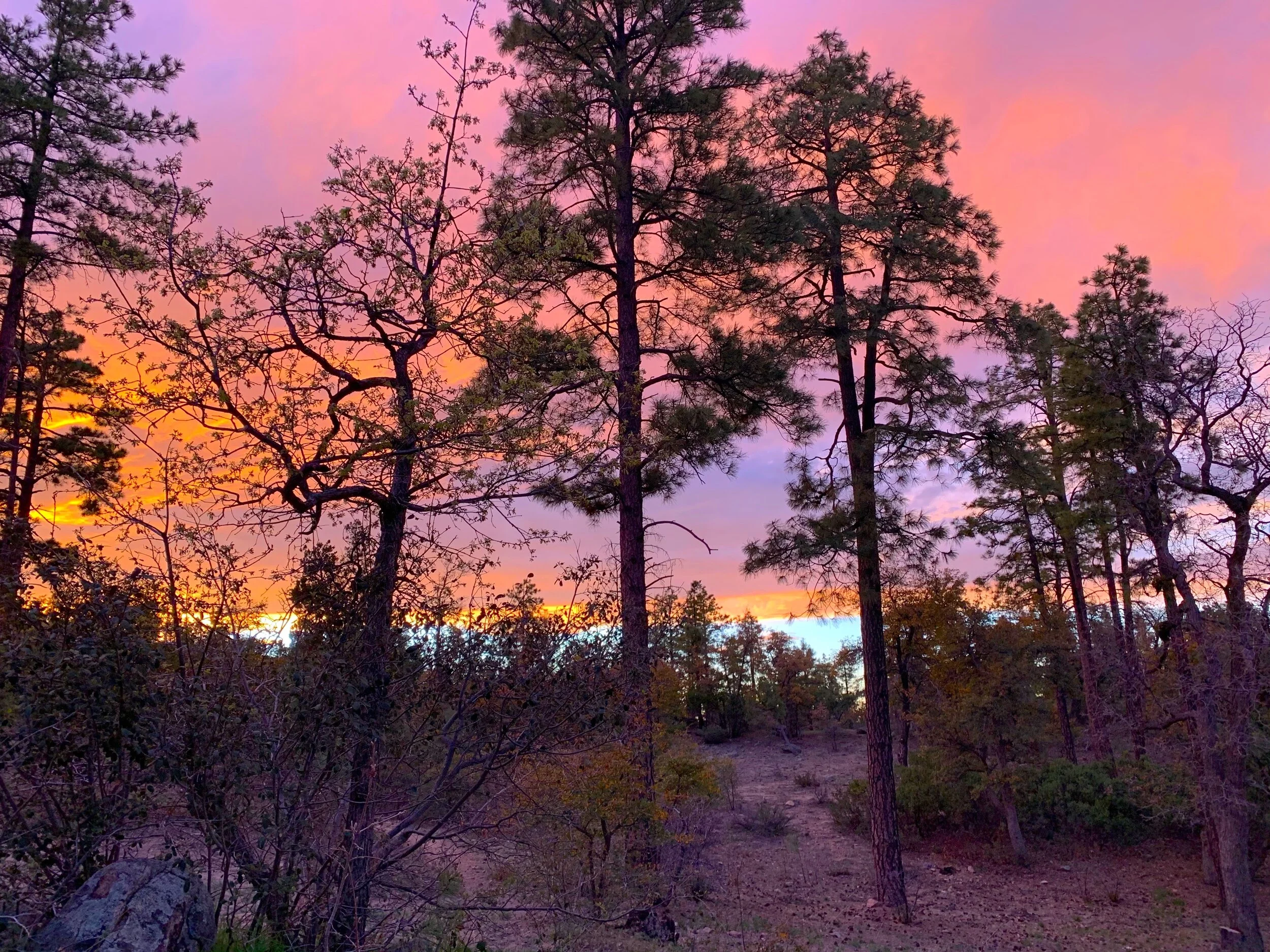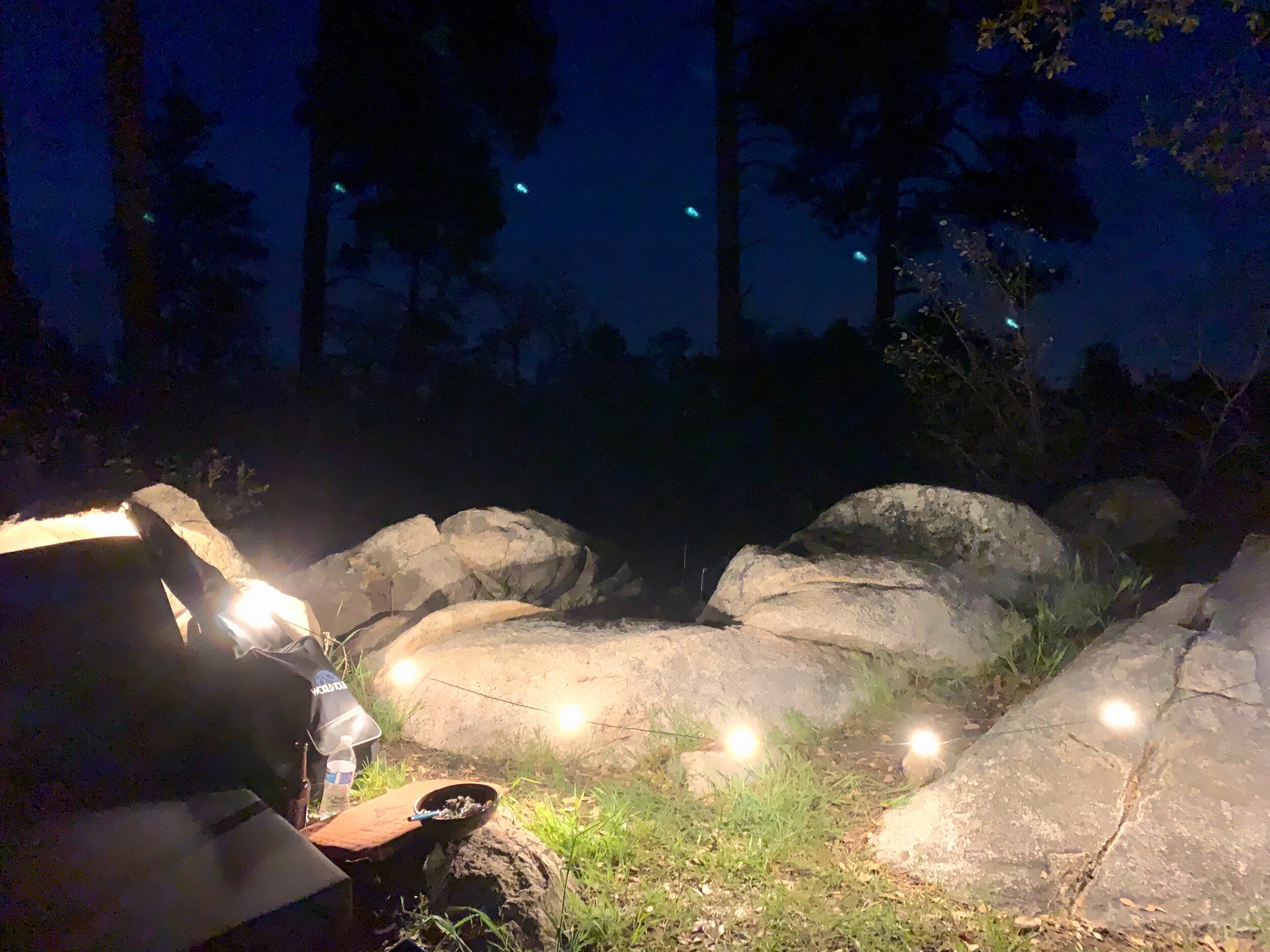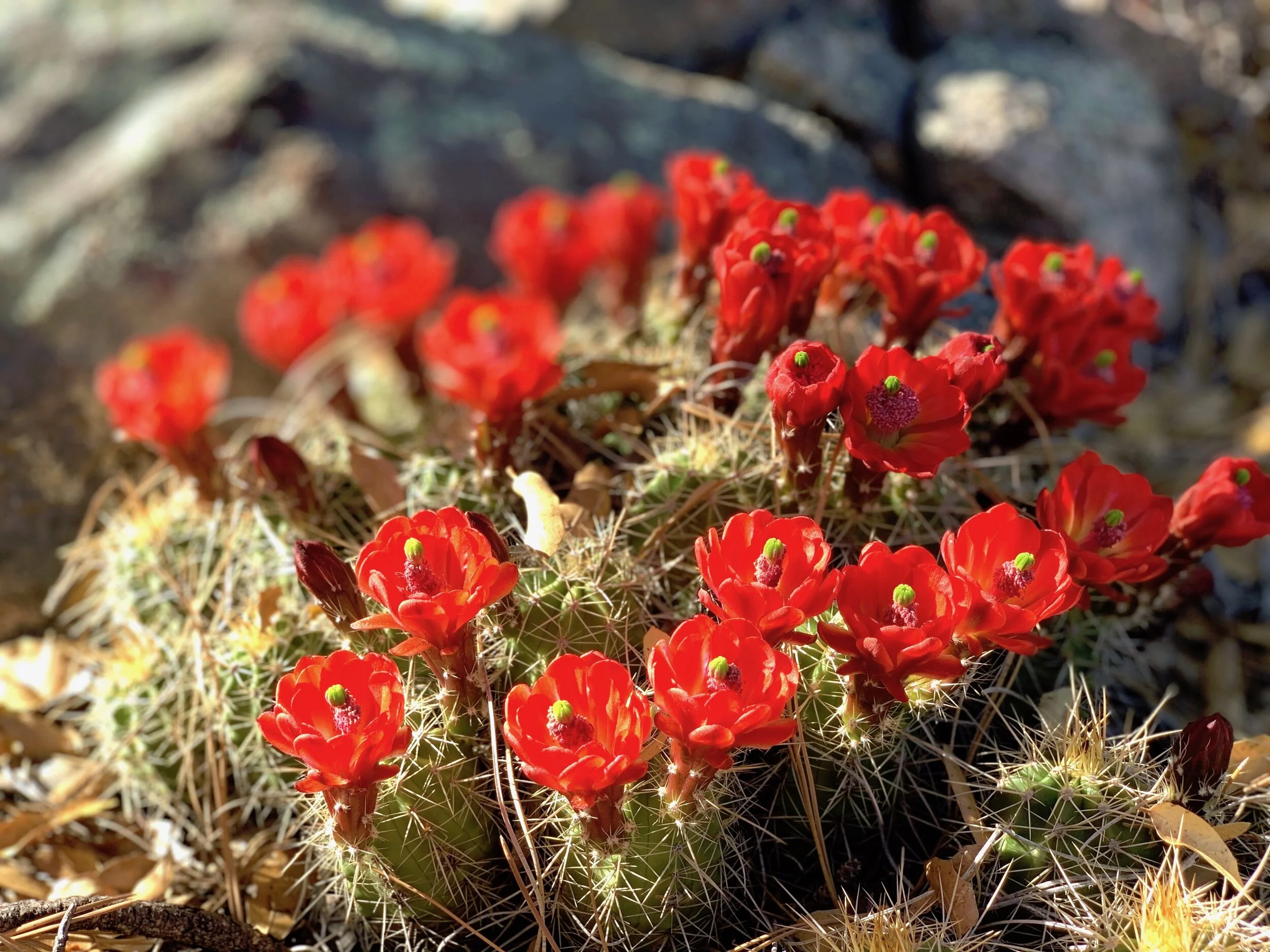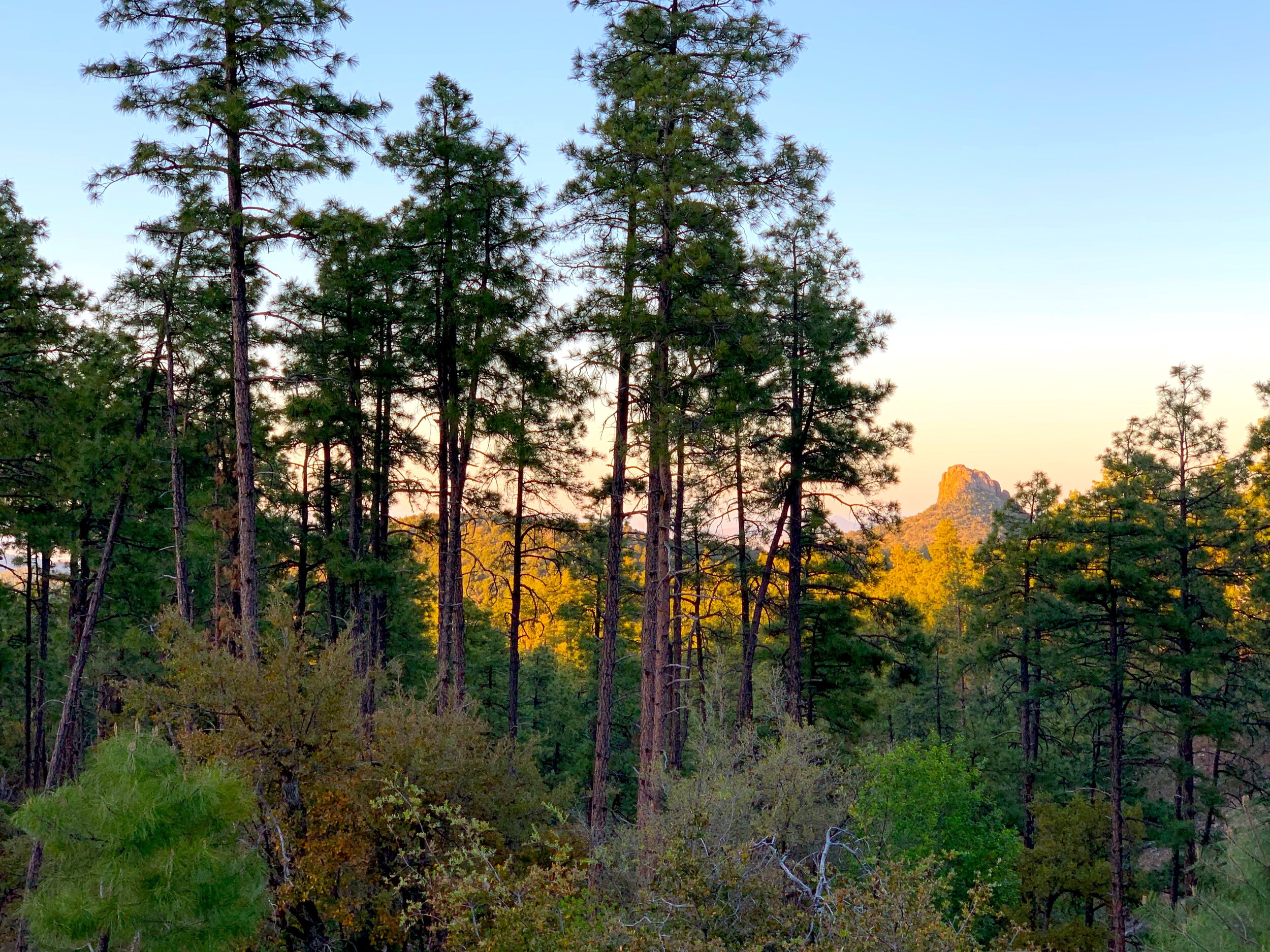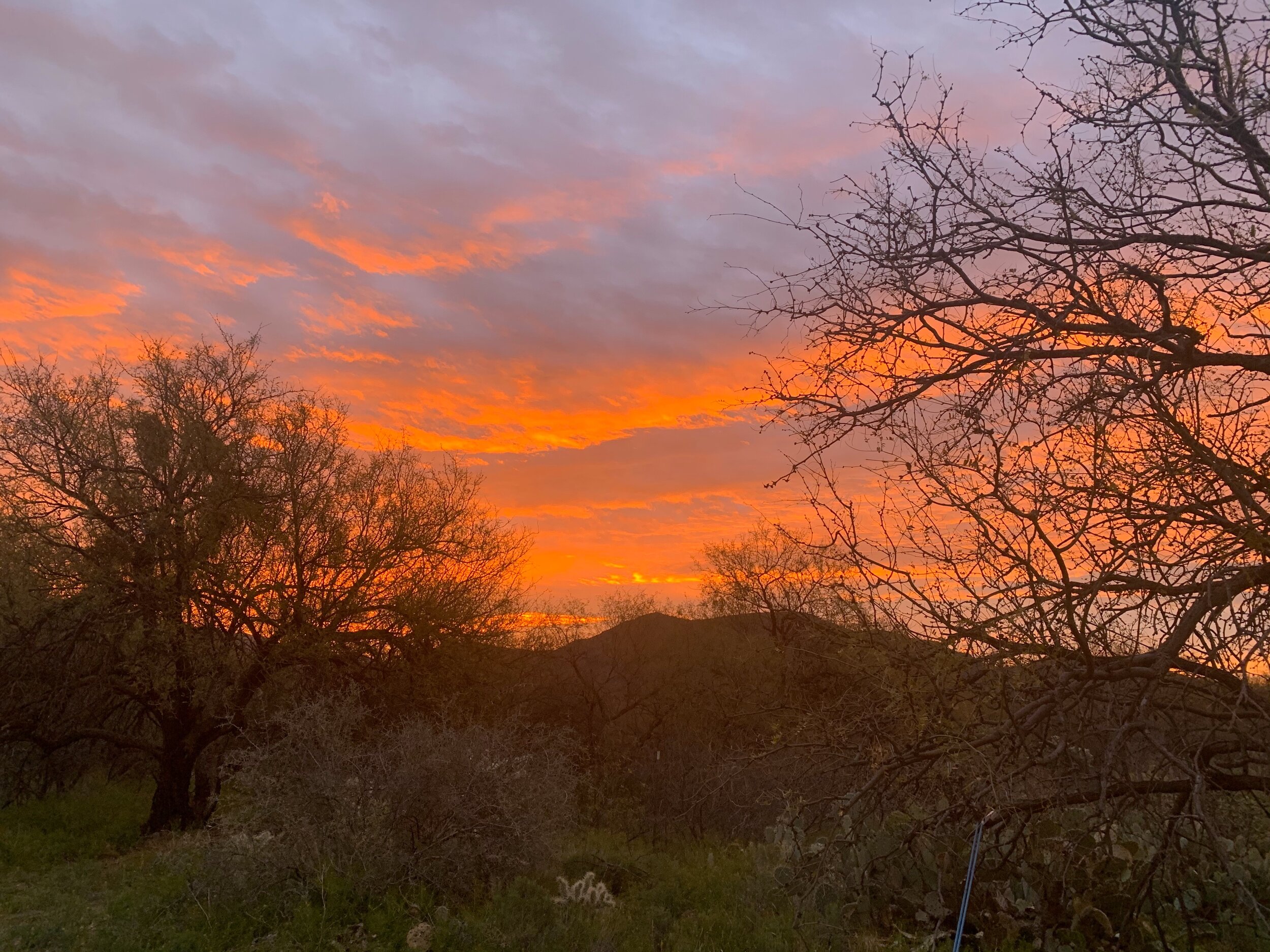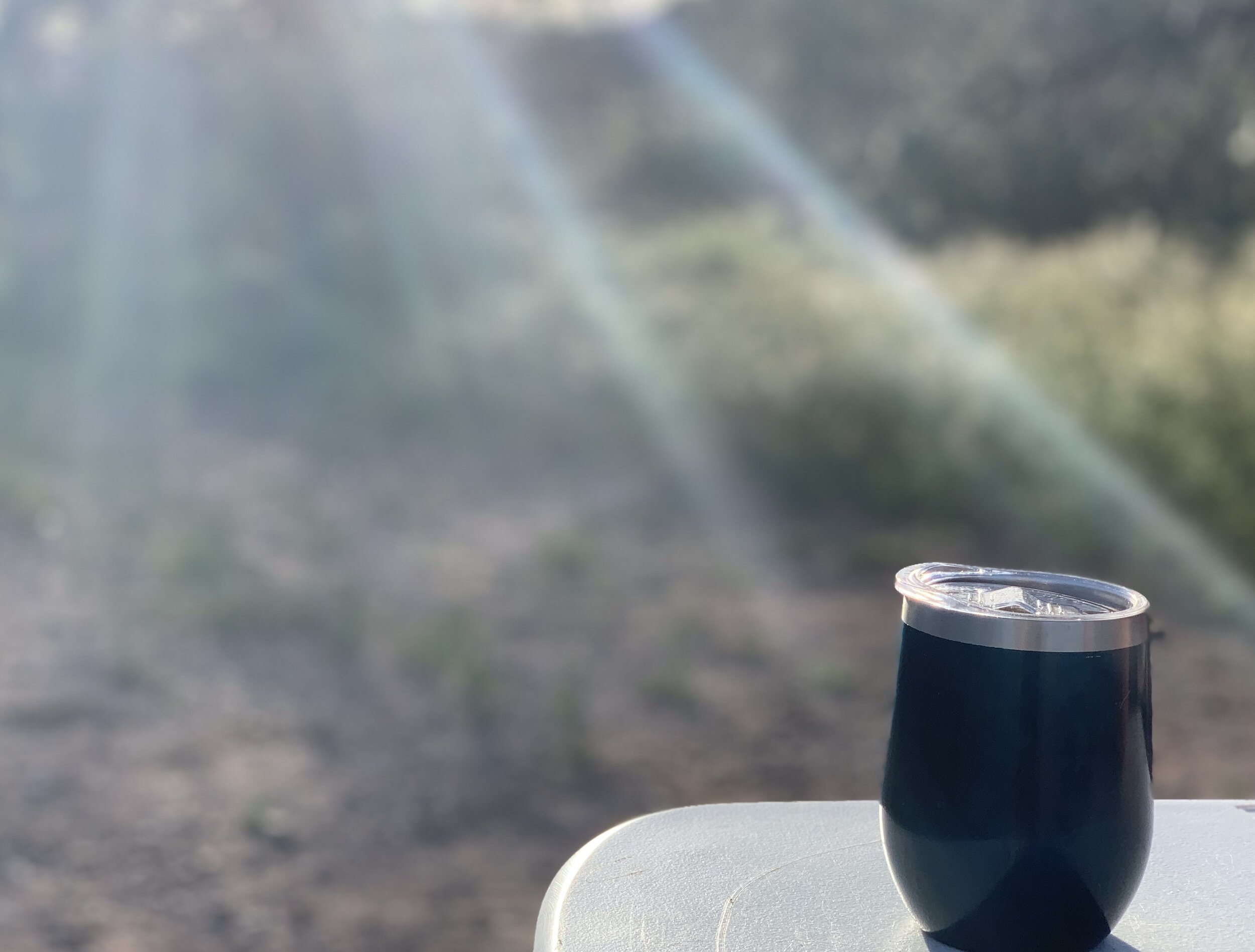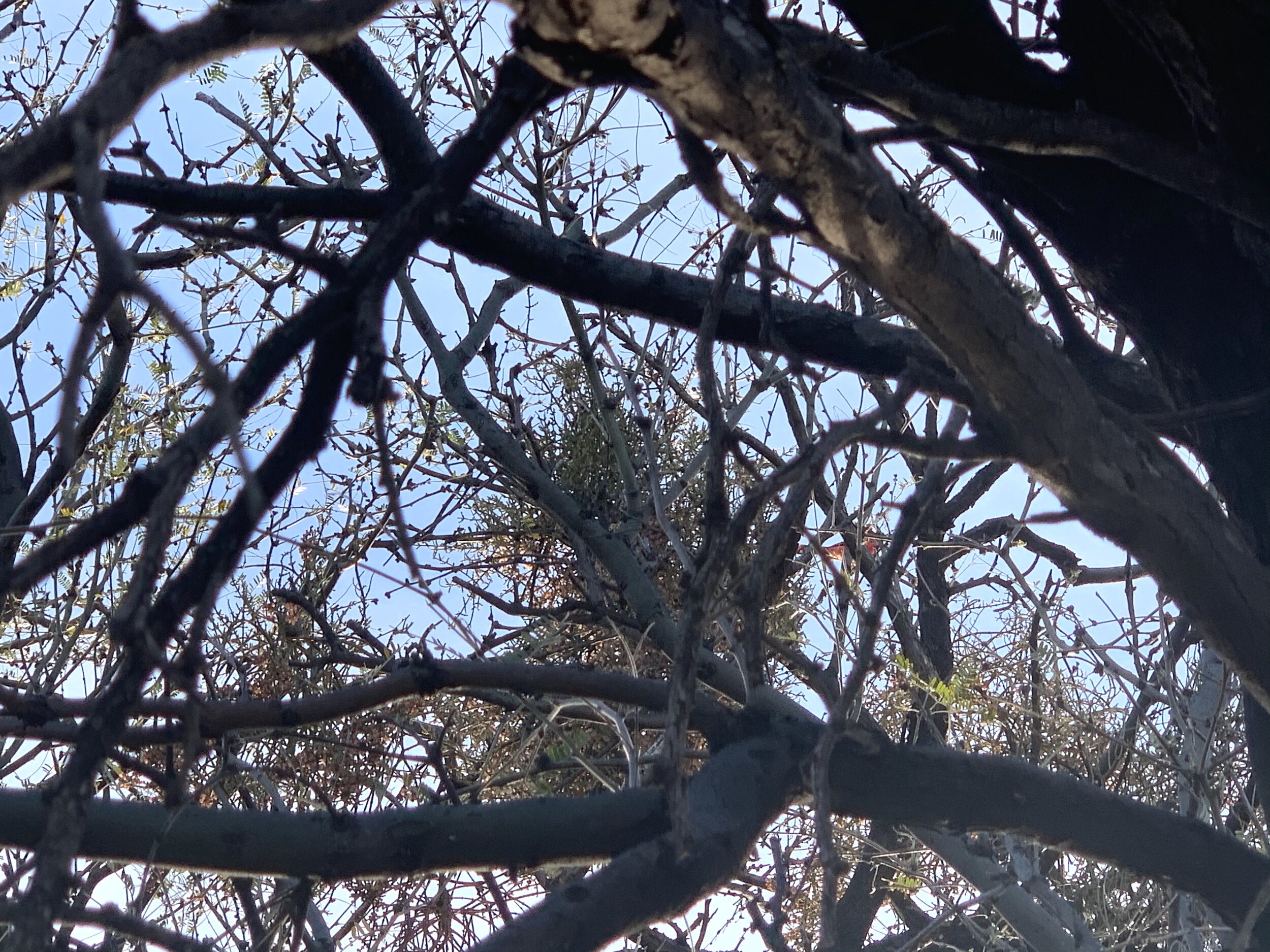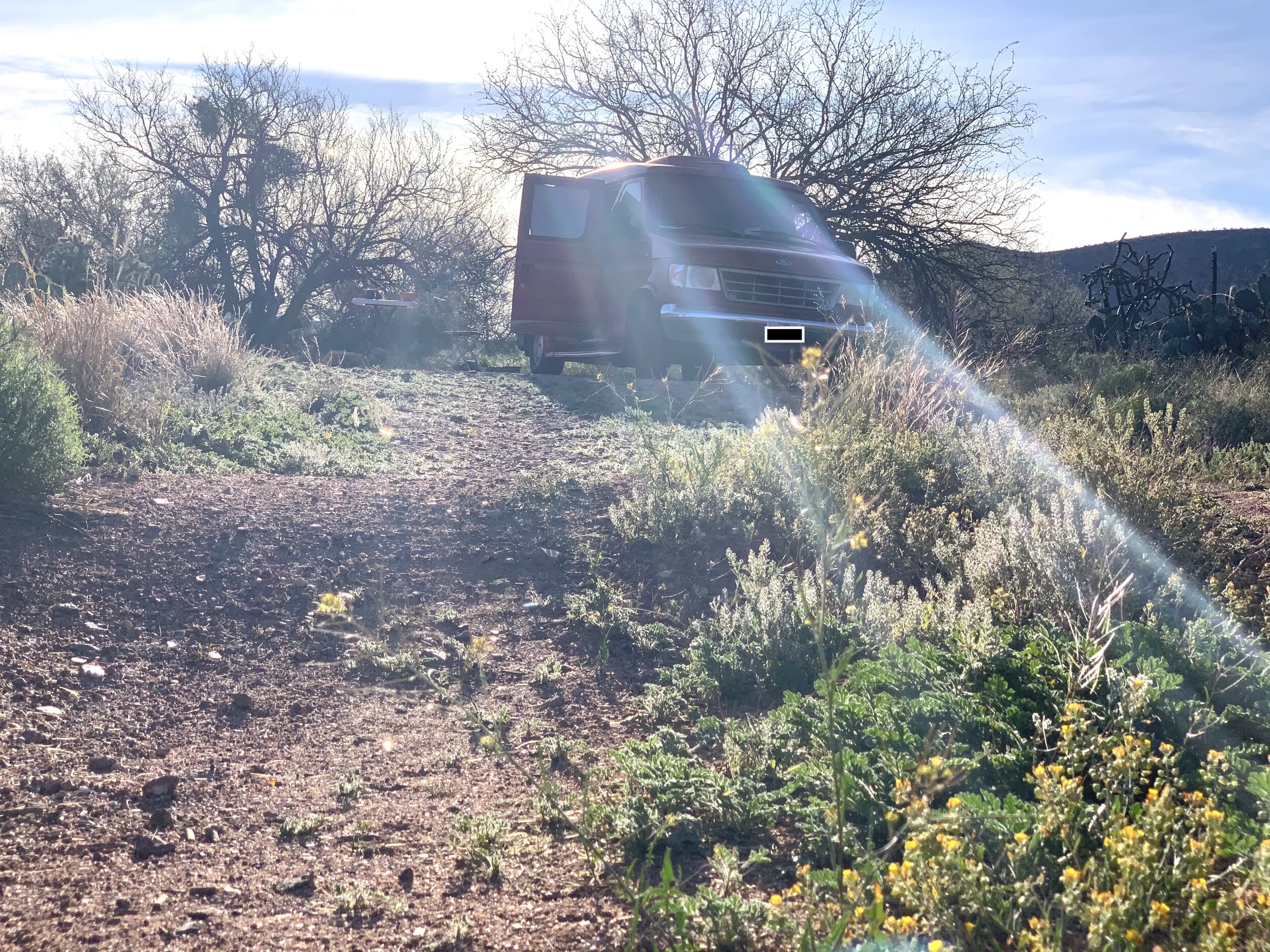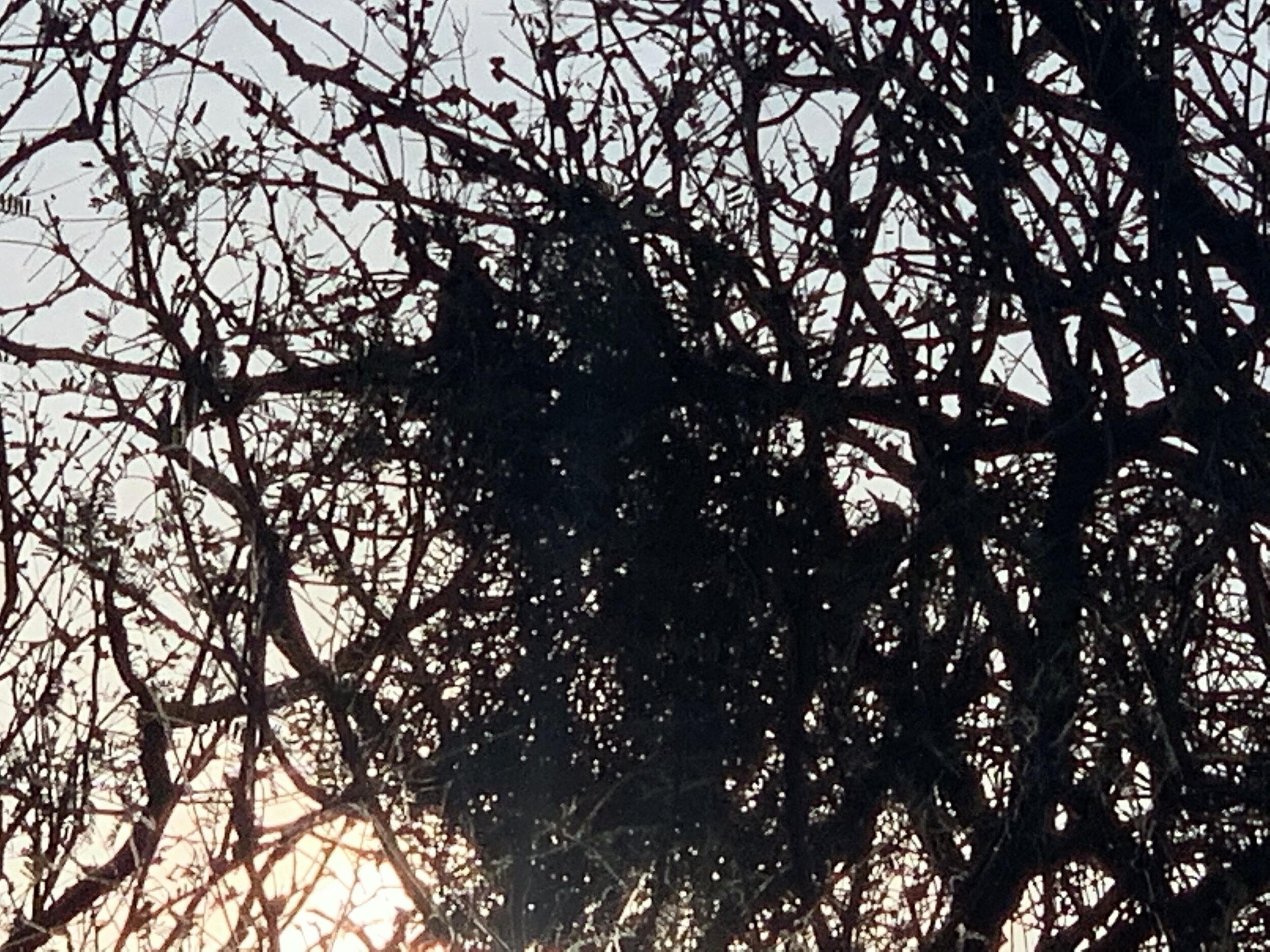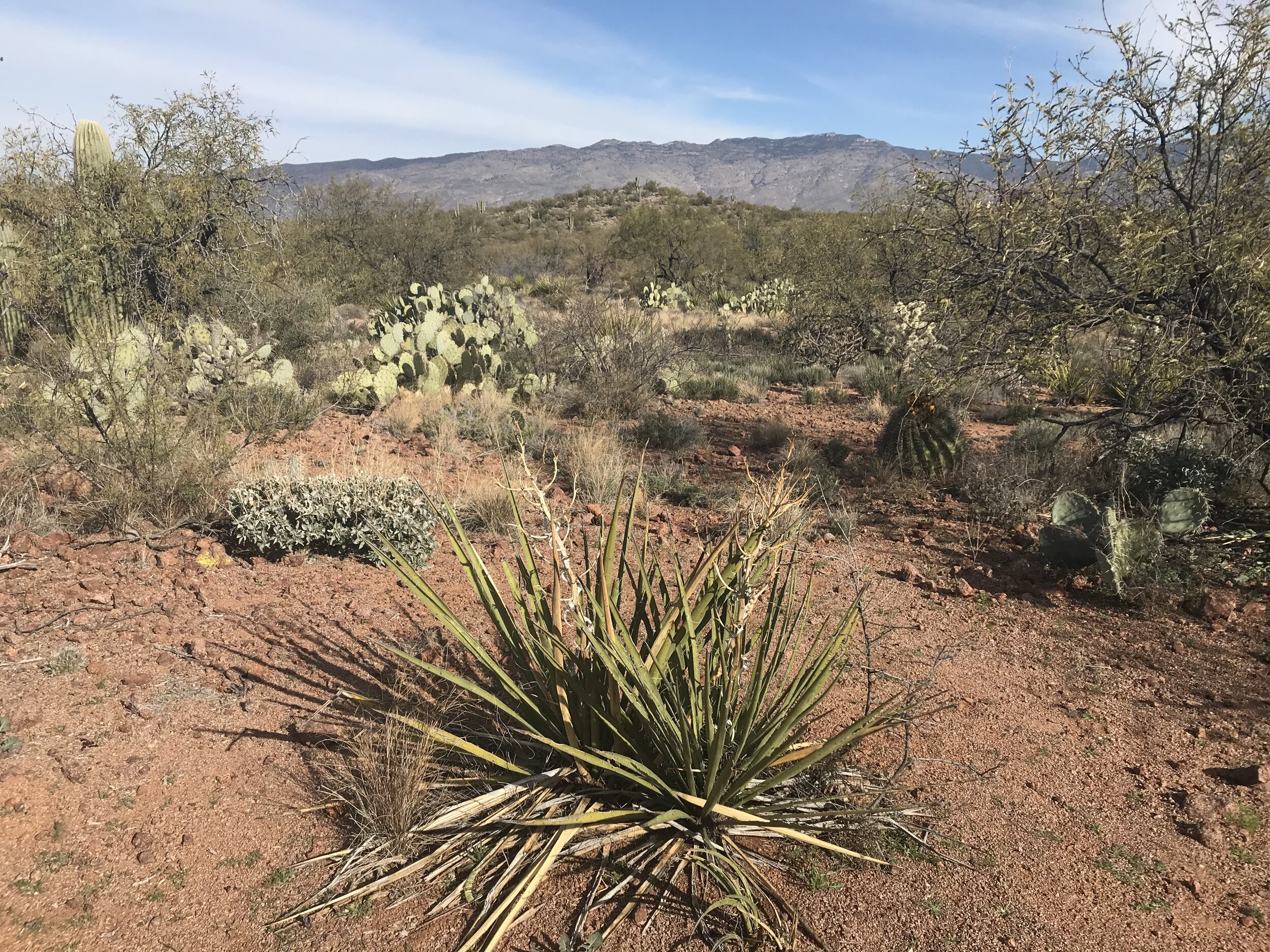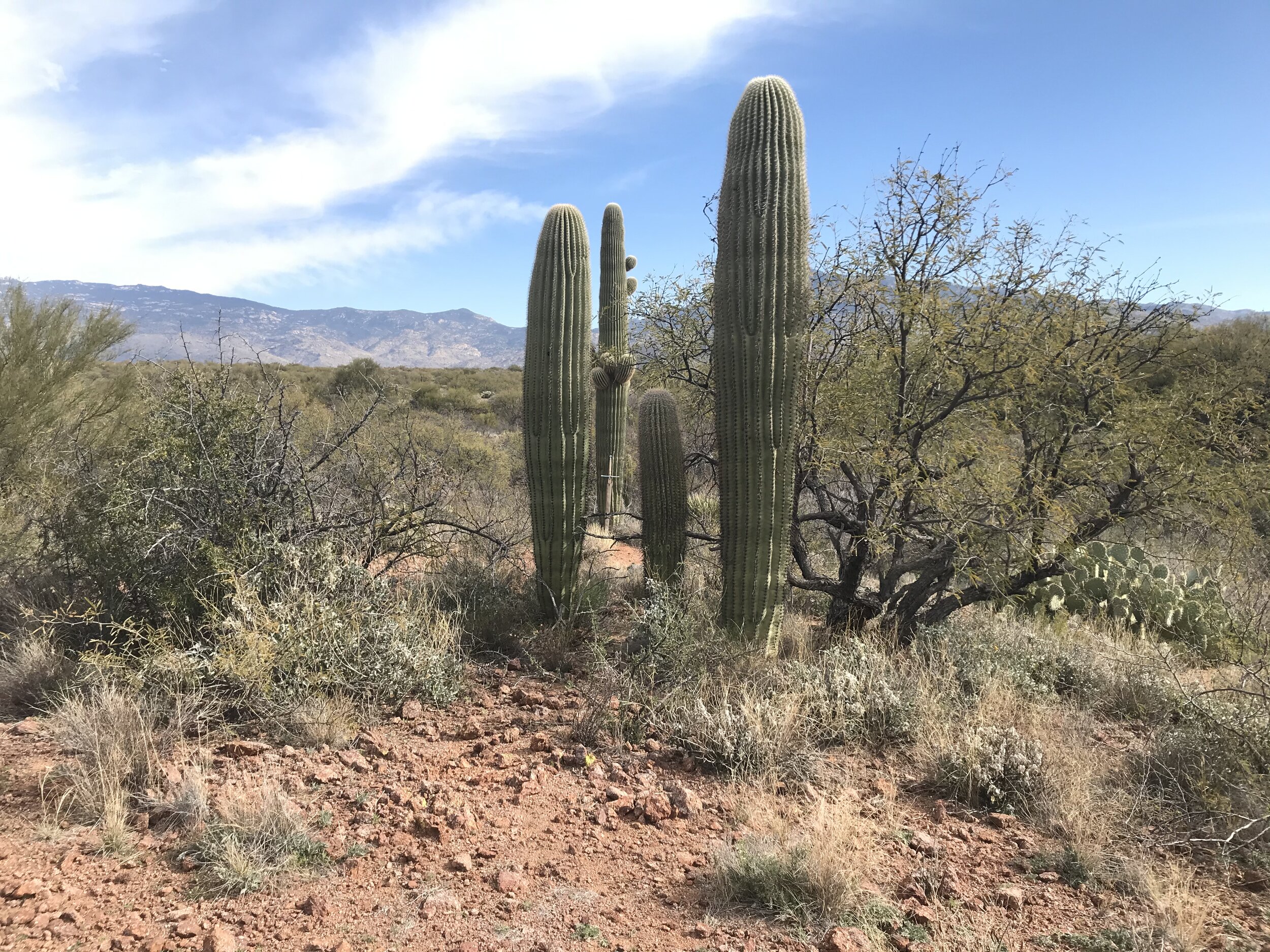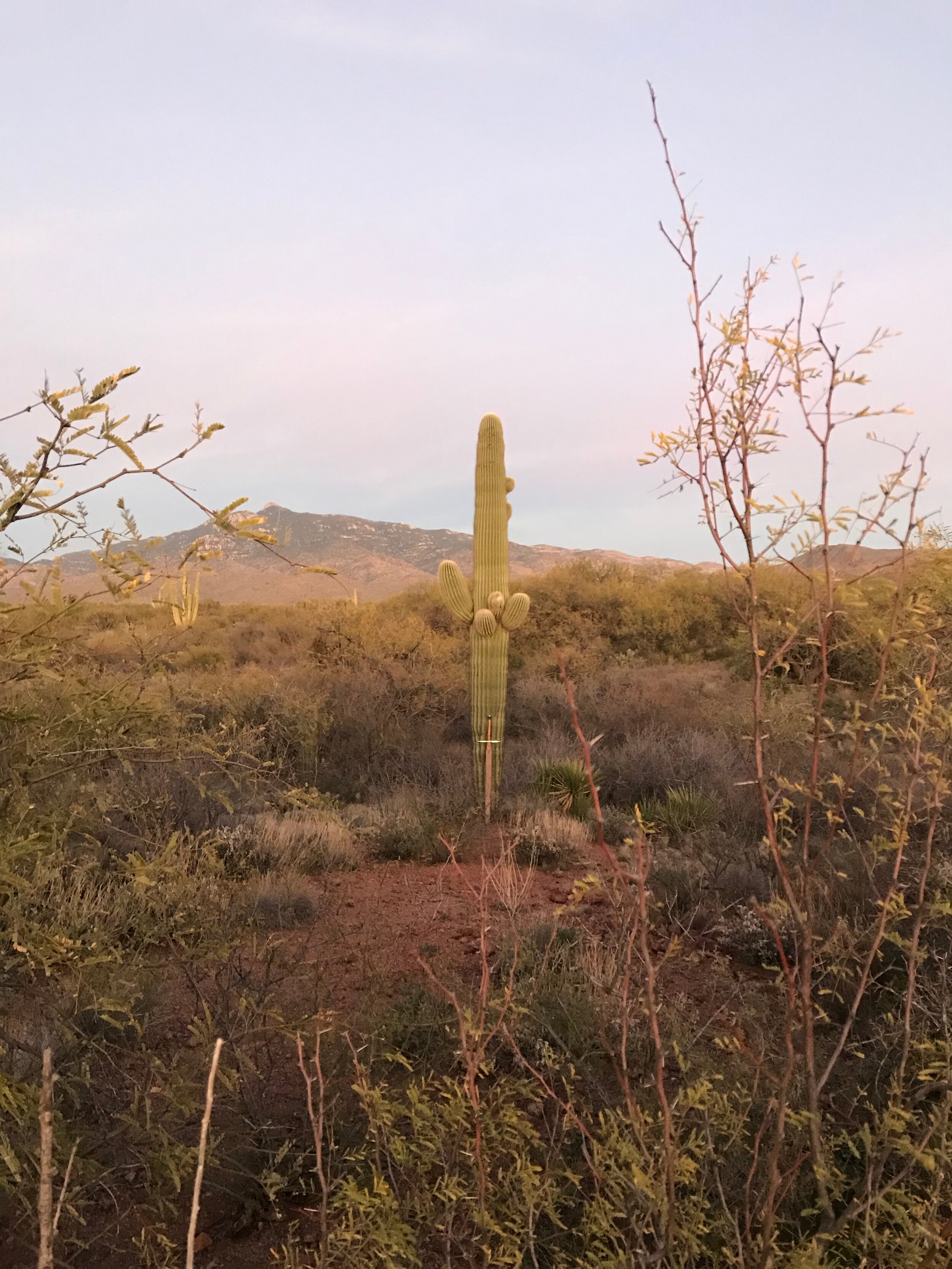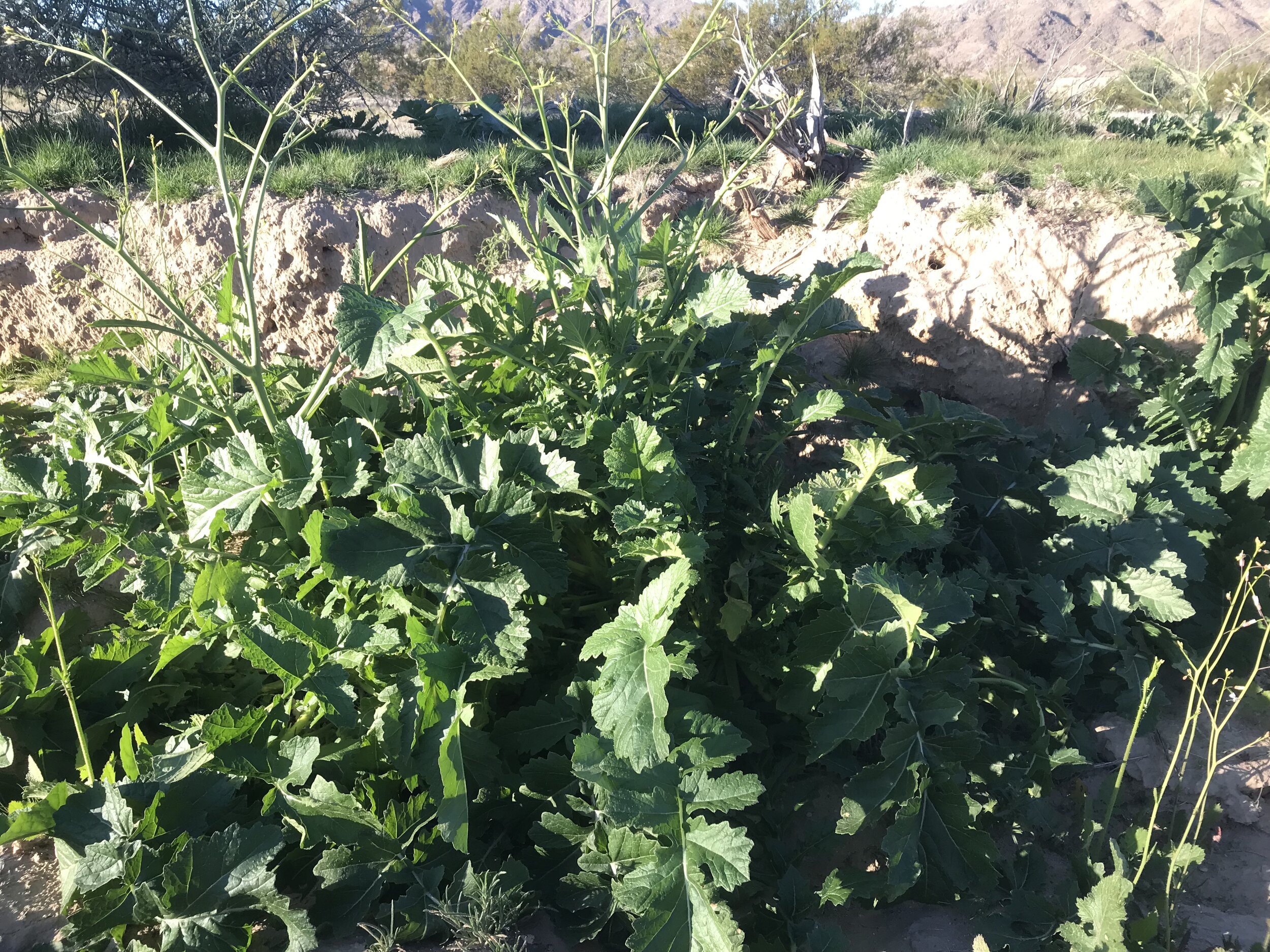1. Over a small, earth-orange bowl with a candy-red tea kettle.
Through the window, a light snow will dust the hillside, lacquering the smattering of bright buildings in this quirky old mining town. The hunt for either (a) shower go-tos (pre-Covid)—yoga studios, gyms, rec centers—or (b) a discrete spot for the outdoor shower came up dry.
So you’ll set tea kettle on stovetop.
Eager for more live music, more of last night’s post-dance conversation and billiards with an engaging stranger, more of the day’s art-covered alleyways and eclectic shops, more of the previous day’s tasting in a vineyard owned by kick-ass sisters, you’ll pour warm water into the bowl—blissfully unaware they were lasts for the foreseeable future (it’s Feb 2020).
You’ll start with your shoulders—soaping and rinsing part by part—and work your way down. Slipping into your robe, you’ll kneel in near child’s pose, head over bowl, and pour from the back of the neck. Shampoo, rinse, condition, rinse. Voilà! This will double as a floor cleaning.
Later, you’ll chat up the drummer with the flying violet hair during a break. Belly full and blood warmed, you’ll throw your body into the raucous, joyful beats, grinning up at her and the bassist rocking pigtails and a massive, popsicle red, triangle bass and harmonizing with the gregarious lead of Igor and the Red Elvises.
The venue—excellent food; stiff, well-crafted concoctions; and music from a stage set high enough to feel like a concert but overlooking an intimate dance floor—has that rare magic that renders locals, musicians, and visitors family. Oh, how you’ll miss that family.
2. In an avocado-green pop-up tent with sun-heated, foot-pump spray.
This luxury version of my vanlife shower is enjoyable only when speed isn’t needed, wind isn’t whipping, and space is aplenty. The tent was added following a handful of showers witnessed only by gleaming sun, Bart the horny toad, Jaxon the red paper wasp, and a cacophony of birds.
Its downfalls: (a) Wind. (b) Useless stakes (see a). And (c) while it usually folds easily to disc shape, for reasons beyond grasp (certainly not mood or hurry), it occasionally refuses.
3. On a fold-up chair, sipping beer and listening to coyotes narrate the farewell of a day so scorching even the ubiquitous Pepto-pink jeeps have absconded.
As the sky softens to milk, the sun-hot spray from the pump tank will feel perfect on skin treated to days of wind and the “air wakes” of zipping jeep tours.
Often stubborn about moving on, you’ll have spent the better part of the day tucked into a human-size crook of juniper branches finishing a work project.
With milk giving way to lavender peach slow dancing over marbled cliffs, you’ll sip the amber nectar. You’ll slide a fresh razor over clean legs. And then, in silky robe, you’ll gallop across the expanse of land, yipping to help the coyotes call in the deep orange final bow before stars swimming in navy velvet make distant memory of the day’s heat. And you’ll know; this is why you stayed.
4. Under a new moon in a Hwy 1-pullout / locals’ hangout.
This one fulfills a promise—to shower, make squash chili, and enjoy a glass of red before night’s end. While the northern California coast is gorgeous, it’s no bastion of boondocking. So the past few days have been moves, spot hunting, and possible-“knock” nights indoors—requiring a drive-ready van and no dinner drink. Today, you ran briefly on a bluff over a bejeweled sea. You picnicked on a tiny shore along the road down just enough of an embankment to hide from passersby while seated, sharing the spot with harbor seals and, a couple rocks over, two young men who fried fish caught on a Huck Finn pole over a folding sheet metal stove. Tomorrow, a storm is coming, and the drive won’t be so lackadaisical, so it’s shower now or hold your stench.
It’s dark, cold, and windy. Not keen on surprising impending young neighbors in a state of undress, you’ll fill the shower before checking the water temp and pop up the tent before checking for wind. You’ll wedge the tent into open side doors and hope that’ll thwart gusts. You’ll step out, shivering under the inky sky, pump quickly, and squeal when the not-yet-lukewarm spray hits. This rapid wash will be, nonetheless, glorious.
By the time the expected visitors arrive, you’ll have put away dinner dishes and two Tupperware of chili and curled up with Women Who Run with Wolves and your second glass. You’ll fall asleep to the faint sounds of flirtation and playful raucousness.
5. At a park while waves crash and a lion bellows.
Quick and easy, you’ll magnet rainbow tapestry betwixt open back doors, warm the kettle, and gather the bits. You’ll slip into this hidden nook—pour, wash, pour, ring your hair out, and pile it in a towel. As you sit back inside for lotion and dressing, the king of the jungle will remind you of the city zoo hidden behind palm fronds across the street.

